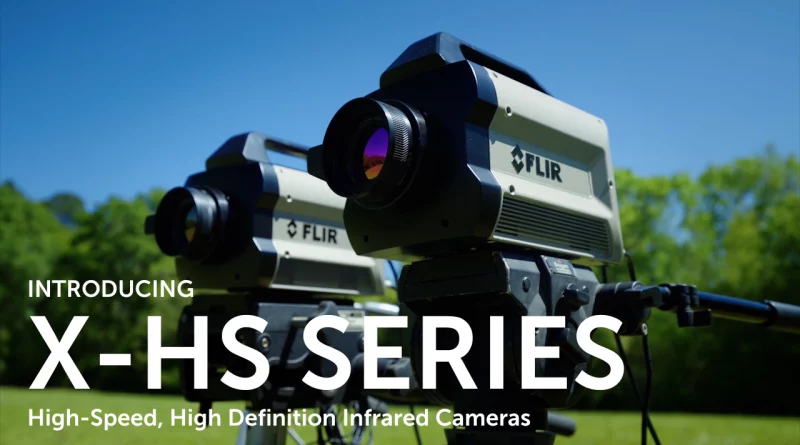Redesigned R&D Science Cameras Guarantee Zero Dropped Frames for Lossless Data Capture and Testing Success
FLIR, a Teledyne Technologies company, announced four new additions to its family of X-series science-grade thermal cameras for research and development (R&D) for both the mid-wave infrared (MWIR) and longwave infrared (LWIR) spectrums: the X6980 HS high-speed family and the X8580 high-resolution family.
These new high-speed (HS) models expand the performance capabilities of the popular FLIR X-Series cameras by taking connectivity and on-camera recording to the next level.
New 10GigE and CoaXPress (CXP) 2.1 high-speed interfaces provide more than one hour of lightning-fast image streaming and data transfer, ensuring data fidelity while improving efficiency. At the same time, the on-camera recording option includes a removable nonvolatile memory express (NVMe) solid-state drive (SSD) to ensure lossless recording of critical thermal events. A four-terabyte (TB) high-speed SSD is now included as a standard feature on all X-Series HS cameras, providing the ability to record multiple hours of thermal data on the camera without dropping frames.
“The FLIR X-series science thermal cameras are the industry standard for defense, academic, and commercial research and testing applications in the most critical test scenarios around the globe that require high-speed or high-resolution thermal data capture,” said Jerry Beeney, Business Development Director, FLIR. “With the new X-series HS infrared cameras, lab or field operators will have access to lossless onboard recording, high-speed streaming and data transfer, and proprietary trigger and synchronization for precise, on-time recording.”

